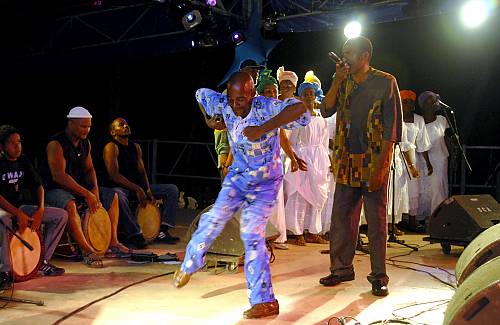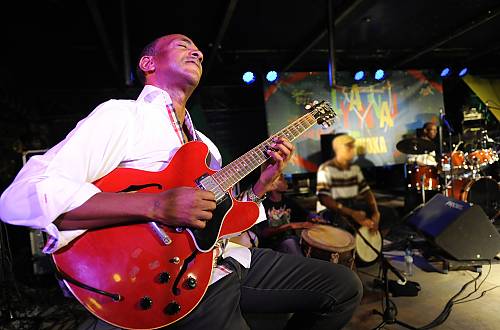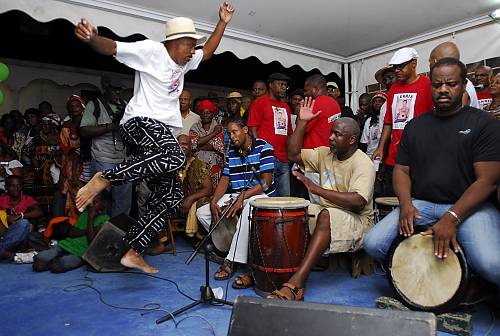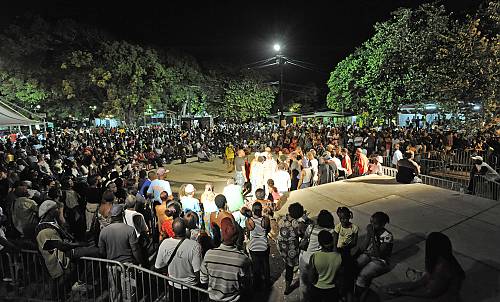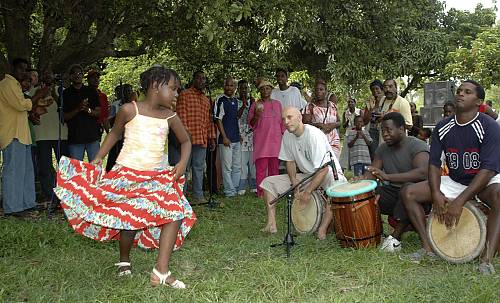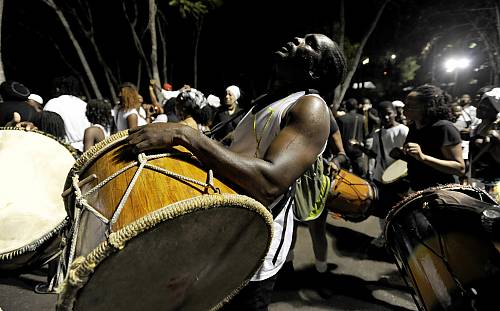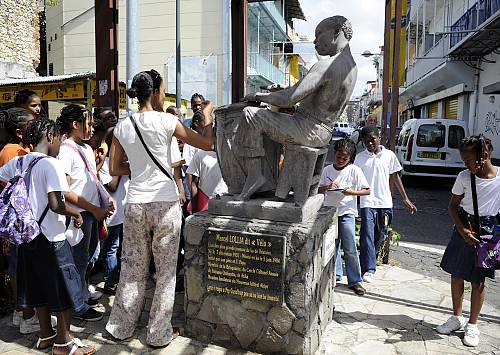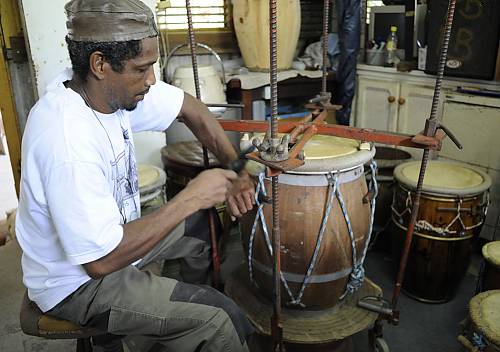Gwoka: music, song, dance and cultural practice representative of Guadeloupean identity
Inscribed in 2014 (9.COM) on the Representative List of the Intangible Cultural Heritage of Humanity

Gwoka is found among all ethnic and religious groups of Guadeloupean society. It combines responsorial singing in Guadeloupean Creole, rhythms played on the Ka drums and dancing. In its traditional form, Gwoka unites these three areas of expression and emphasizes individual qualities of improvisation. The participants and public form a circle in which dancers and soloists enter in turn and perform, facing the drums. The public claps and takes up the chorus from the soloist. Several thousand people regularly practise Gwoka at open-air Gwoka evenings, where the dance circle functions as a place to develop individual talents. Transmission of the practice and Ka drum-making skills is both informal through families and groups of friends, but also increasingly through formal workshops and schools of traditional dance and music. Gwoka is one of the most identifiable elements of Guadeloupean society and its contemporary expressions explore new avenues of music, choreography or singing. It is present at the high points of daily life, as well as at festive, cultural and secular events. It also accompanies movements of social and political protest. It strengthens identity and provides a feeling of communal development and individual pride, conveying values of conviviality, resistance and dignity.
